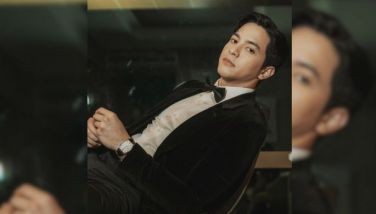Birth of Philippine Poker Tour
It all began as a dream of a somewhat frustrated player, Atty. Jojo Allado. A lawyer working at the Department of Justice, he was introduced to poker by co-workers as a means of building camaraderie in 2009. Eventually, one of them dared him to play poker with real money at stake. Allado bravely took the challenge.
“It was very intimidating at first,” recalls Allado. “From playing with friends in a very casual atmosphere to sitting down at a table where everyone’s out to get you. It’s a very predatory mood, especially since a lot of cash players do it for a living.”
Unbeknownst to the rookie, the other players were piranha who saw him as willing bait. Allado recalls that he “paid very handsomely” for his poker education, until his opponents saw him as one of them, and he learned more of the game. Eventually, Allado took the game more seriously. No long encumbered by his work, he took a two-month trip to Las Vegas to study the world’s best players, learn the rules, the system and tricks of the trade by playing. Six weeks into his study trip, though, he had kept busting out at the World Series of Poker. He kept coming back, until an unbelievable stroke of bad luck nearly soured him on the game for good.
“The last straw was when I had a straight flush on the flop, and still lost to a higher flush,” says Allado, still shaking his head at the memory. “Nobody could believe it. I sat in the car for a long time after that, devastated. But that’s the way it is in poker. One day, you could be the world’s best player, the next day, you could have a really bad game.”
After he had steeled himself to go back into the casino, a vacationing poker tournament manager and coach approached him and commended him on his uncanny ability to tell what cards other players were holding, and offered him a deal. In exchange for bet staked in the next five tournaments, he would spend the next five days teaching Allado finer points, and his own bag of cheats and tells. He even taught Allado how to keep playing every day for one week, so that he would still be lucid and alert if he ever made it to the finals of a major tournament. He would need to be able to play ten thousand hands a week. That advice would be the game-changer.
The results were visible, and Allado kept on placing highly in all his succeeding tournaments, even outwitting his mentor on occasion. After one particularly successful run, the former government servant had a brainstorm. If he could organize the various owners of poker rooms in the Philippines, they could form the Philippine Poker Tour, and be a part of something really big.
The Philippine Poker Tour is structured around 10 monthly championships, mostly in Metro Manila but increasingly branching out to other hotspots like Angeles, Cebu and Davao. Each tournament carries P1 million in guaranteed prize money. The 10 champions are then brought together in one final table. The overall champion wins the right to play in the World Series of Poker, and will be staked (the buy-in is $10,000) and supported by the PPT.
“One player asked me, if they win in Las Vegas, does the Philippine Poker Tour get a share of their winnings,” Allado recalls. “I said no. Whatever they win is theirs.”
What makes the PPT very successful is Allado’s credibility. He is not a competitor of poker room owners. He personally guarantees all the prize money. And he does not take cuts of winnings, which started bringing in foreign players. Most importantly of all, he has elevated the level of play in the Philippines. Before the PPT, blinds were 20 minutes long to generate more profits from the constant turnover of players. In the WSOP, they’re two hours long. Seeing how disadvantaged Filipino players would be abroad, Allado ruled that blinds would now be an hour long. The fruits were immediately felt, as the Asian Poker Tour showed. With 40-minute blinds, Filipino players dominated, eliminating all other competition, and champion Jav Medina directly attributed to the endurance they developed playing in the PPT.
One important point Allado stresses, however, is that tournament poker is entirely different from compulsive gambling. Tournament poker is a sport, and is very democratic. No matter who you are, the buy-in is the same, and the rules apply to everybody. You can’t be bullied by someone with deeper pockets. And because of the longer blinds, even if you’re down, you have a chance to get back on top, if you’re patient enough. This feeds a vision Allado has for poker, similar to what is already happening for Filipino pool players in the biggest tournaments abroad.
“My dream is that, when foreign players see many Filipinos playing in a poker tournament, they will quiver, because they know how good our players are.”
With the astronomical growth of the Philippine Poker Tour, that dream may come sooner than later.
- Latest
- Trending






























